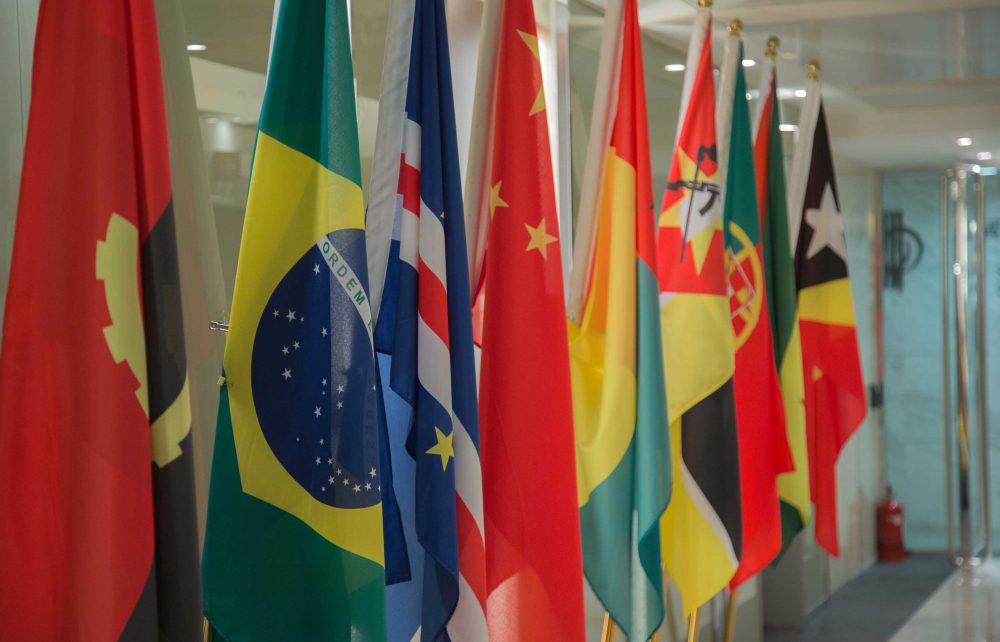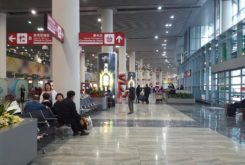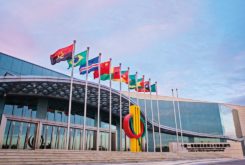With an eye to the future, Forum Macao is preparing to analyse the work carried out since it was founded in 2003, the aim being to take on a more dynamic and active role.
At the request of the institution, a Chinese central government think tank has been commissioned to study the work it has been carrying out and present new targets and roads for the future. Meanwhile, Forum Macao will organise a conference in Macao end of March where high ranking officials and others that have worked and are currently working in the institution will attend to discuss their accomplishments in the last 15 years and its strategies for the future.
The initiative to create Forum Macao originated with the government of China with full support of the Portuguese-speaking countries. In recent months, China has shown clear signs that it would like to find new ways to make the institution more active.
China has shown clear signs that it would like to find new ways to make the institution more active.
By strengthening its structure with higher-level personnel, the Chinese authorities have made clear to the eight Portuguese-speaking countries represented at the Forum Macao that they should also rethink their respective approaches. In 2017, the Chinese Ministry of Commerce appointed Ding Tian as the new Deputy Secretary-General of Forum Macao and the year before the Ministry of Commerce appointed Xu Yingzhen as Secretary-General of the Forum Macao.
Clearly Brazil, Angola and Portugal should play a bigger role within the Forum Macao taking in consideration that they are the economic powerhouses in this group of the eight Portuguese-speaking countries. Since the establishment of the Forum Macao this hasn´t happened and none of them have fully assumed a leadership role in the organisation.
Brazil is not only the main economic partner of China but also the biggest of all of the Portuguese-speaking countries with a population of almost 208 million. Angola is one of China´s most important partners in Africa, a continent that analysts consider the future of world development. Portugal is increasingly a leader in technology and could be considered a door to investment in Europe. China have been investing extensively in local companies.
The three countries are, without a doubt, the most important in Forum Macao´s economic and trade relations with China, accounting for 98.2% of the total trade value recorded in 2017 estimated at US$ 118 billion.
It is well-known that major deals between China and the Portuguese-speaking countries do not usually pass through Macao or via Forum Macao. However, there is potential for Forum Macao to help small and medium sized enterprises (SMEs) from those countries to expand their businesses in southern China.
The Chinese government’s recent move to create the Guangdong-Hong Kong-Macao Greater Bay Area has created new possibilities for economic and trade cooperation with Portuguese-speaking countries and SMEs from one of China’s wealthiest regions.
The Greater Bay Area covers 56,000 sq km, accounts for 66.7 million people and has a GDP of US$1.3 trillion, ranking it 13th worldwide. It also has three of the world´s busiest commercial ports – Shenzhen, Hong Kong and Guangzhou.
Efforts are clearly being made to boost the performance of Forum Macao, but for this to bear fruit the Portuguese-speaking countries have to examine what has already been done and invest in making their own delegations more dynamic.
The initiative implemented by China 15 years ago and the appeals made every three years to enhance and promote relations with the different Portuguese-speaking countries remain valid. Revitalising those countries’ representations in Forum Macao, along with deeper relationships between its members, regardless of the individual agendas pursued by each country, will give new impetus to the institution’s work.
Previously, Forum has been very focused on initiatives developed in Macao and mainland China, due to the absence of similar initiatives by most of the Portuguese-speaking countries represented in the institution. This situation should give way to a Forum which places the needs and interests of those eight nations in its entirety on the table.
The eight countries should not hesitate to make use of this platform, because it was for precisely that reason that China conceived and established Forum Macao.
The Forum is also Macao Special Administrative Region´s most significant multilateral economic structure for external relations and a base for the countries to deal with China and among themselves.
Beyond the objectives of economic, trade and cultural cooperation, one question must still be answered: it is necessary to explain what Forum Macao is abroad and what role it can play to help entrepreneurs and companies, making cooperation between China and the Portuguese-speaking countries more effective via the Macao platform. The Forum´s future visits planned for this year to the Portuguese-speaking countries might help to reinforce the message: To use Forum for business and networking with China.
The Action Plans presented every three years, during the Ministerial meeting of the Forum in Macao, are indeed very interesting, but if the participants do not undertake to communicate and cooperate with each other it will be difficult to transform them into reality.
Forum Macao is headed by Secretary-General Xu Yinzhen of the Ministry of Commerce of China and has three deputy secretaries-general: Ding Tian nominated by China, Rodrigo Brum nominated by the eight Portuguese-speaking countries represented in the Forum, and Echo Chan nominated by the Macau Government.
Angola is represented in the Forum by Belarmino Barbosa, Brazil by Rodrigo Mendes Araújo, Cabo Verde by Nuno Furtado, Guiné-Bissau by Malam Camará, Moçambique by Francisca Torcida Reino, Portugal by Maria João Bonifácio, São Tomé e Príncipe by Gualter Cruz and Timor-Leste by Danilo Rodrigues.
The Macao government´s budget for 2018 allocated MOP 327.908 million (US$40.9 million) to the Forum Macao. It will also pay MOP 692.8 million (US$ 86.1 million) for the new Service Complex for Economic Cooperation between China and Portuguese-speaking countries where de Forum will move to in mid-2018.
The new complex will be built on land plots C15 and C16 – an area of around 14,200 square meters, located next to the Legislative Assembly building by Nam Van Lake. The complex will contain an exhibition centre for food products from the Portuguese-speaking countries; a business service centre for enterprises from the countries belonging to the Forum Macao; a training centre; an information centre; an exhibition hall showcasing Sino-Luso relations and their cultures; and a space to stage exhibitions relating to Macao’s urban development.




